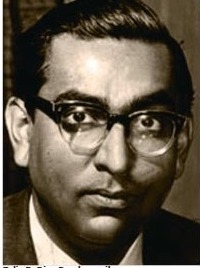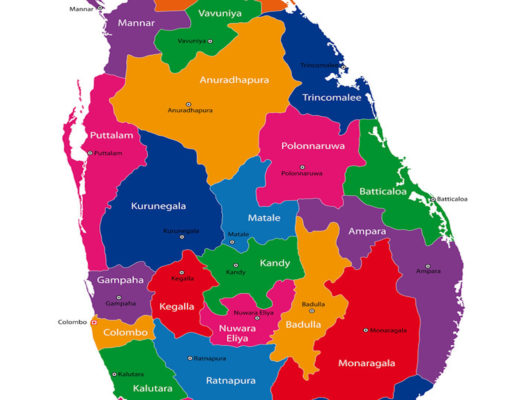Immediately after the unsuccessful coup attempt in 1962 to depose Sirimavo Bandaranaike’s Government, all conspirators were detained except Sir Oliver Goonatillake, being the Queen’s representative in Ceylon, as the Governor General. The only thing the Government could do was to extradite Sir Oliver from Ceylon declaring persona non grata.
One of the staff members, Peter Wijesinghe, who worked at the Sri Lanka High Commission in London marked a record of being the longest Government servant to work for the Government for fifty years continuously, with extensions on a contract basis. Wijesinghe closely associated Sir Oliver Goonatillake.

Peter Wijesinghe
In fact, he was adopted by Sir Oliver’s family as a young boy. Sir Oliver took him to London in 1948, as a domestic help, when Sir Oliver assumed duties as the Sri Lanka High Commissioner in the UK. When Sir Oliver relinquished his duties, he recruited Peter Wijesinghe officially to the High Commission staff as a junior non-diplomatic officer. Ever since, he grew up to be a man of wisdom and made a German girl Hannah, as his wife. Sir Oliver arranged a flat for the newly married couple to live at 3A, Carlisle Place, London W1, a property that belonged to a friend of Sir Oliver – Mrs. Saunders.
Peter Wijesinghe has always spoken with respect and gratitude towards Sir Oliver and his family in Kandy. The writer knew Peter Wijesinghe for decades in London, who has many interesting stories to reveal about his experiences in London from 1948.
He also remembers vividly the well-known d’état attempt in 1962 when Sir Oliver became an innocent victim, and how Sir Oliver was taken by security officers, under the strict orders from Felix R. Dias Bandaranaike, the Minister of Finance at the time.
Felix R. Dias Bandaranaike

In Paris
Sir Oliver had been very much distraught after the expulsion saga. However, he managed to recuperate from the jolt gradually with the help of his friend Baroness de Waldner, who came to his aid from the time Sir Oliver landed in Paris, after the harrowing experience in his own country.
After few days of Sir Oliver’s extradition from Sri Lanka, Peter Wijesinghe received an unexpected telephone call while he and his wife were watching TV at their flat in Carlisle Place. He was taken quite by surprise after hearing Sir Oliver’s voice again, saying:
Peter and Hannah Wijesinghe

“Peter, I want to come to London, can I stay with you in your flat? Also, can you inform Mrs. Saunders about my plan? Some letters addressed to me will be delivered to your home address, please keep them for me.”
Excited Peter Wijesinghe respondedby saying: “You come anytime Sir, you are most welcome”.
A few days later Sir Oliver arrived in London and stayed with Peter and Hannah Wijesinghe at 3A, Carlisle Place, London SW1. They made Sir Oliver comfortable to the best of their ability and protected the old master for one whole year, without taking any risks of exposing Sir Oliver’s presence in London.
Frozen Funds
Due to stringent exchange control regulations imposed by the Finance Minister, Felix R. Dias Bandaranaike, Sir Oliver’s money was frozen in banks. He could not get a single cent transferred out of Sri Lanka. Sir Oliver had cultivated affluent friends such as Baroness de Waldner in Paris, Mrs. Saunders in the UK, Maharaja and Maharani of Baroda, His Highness Aga Khan, the German industrialist Herr Krupp, Chidambaram Adyar, a wealthy Indian entrepreneur in Bombay and many more, but he was reluctant to be seen as becoming a liability to any one of them.
Under such tragic circumstances, there were none other than Peter and Hannah for Sir Oliver’s rescue and they extended a helping hand in whatever form within their means. Simultaneously, Sir Oliver’s daughter managed to arrange British pounds in London for her father, by disposing Ceylon rupees in Sri Lanka, through influential contacts in Colombo.
The term ‘money laundering’ had not been evolved then, although in technical terms such procedures amounted to violation of Exchange Control Regulations, and became illegal under the monetary laws that prevailed then. This caused a sudden starvation of funds for Sir Oliver in London, and left him in a quandary. He could go out only in the evenings to meet up with his friends, and even that was done in a disguised manner as he lived incognito in the UK.
Providence
An individual’s destiny shapes in different forms during one’s sojourn in this corporeal world. This theory was proven beyond any doubt when a person of Sir Oliver’s calibre and position is taken into consideration.
He was the most powerful official in Ceylon once, who acted as the Governor General of Sri Lanka and Queen’s representative yet, and overnight he had to become so powerless, helpless and vulnerable.
Sir Oliver was married to Esther (née Jayawardena) and had three children – Joyce, Sheila and Ernie. As a brave man he did not succumb to grief under the circumstances, instead he embraced all such humanoid chastisements as God’s will. He wanted to build up a new life by putting his past away since all his wealth was frozen.
Veeeraswamy – Oldest Indian Restaurent in Central London

Against such a backdrop, Peter Wijesinghe says, he took up a job in Central London initially, at the upper market famous Indian eatery, Veerasamy’s Restaurant – in Regents Street, Piccadilly Circus – as cashier. Seemingly he managed to upgrade his position by working at several companies based in London, related to Ceylon tea and rubber businesses. Finally, Sir Oliver rose up to the position of becoming the first Asian to be elected as an underwriter to the renowned reinsurance house in the UK, Lloyds of London. The financial qualification to become an underwriting member of Lloyds register demanded one to show £250,000 in credit in one’s bank account. In this regard, his friend Mrs.Saunders loaned him some money, as he was short of an additional sum to get his Lloyds registration.
Back on his feet
As a Lloyds underwriter, Sir Oliver managed once more to earn quite a lot of money. He travelled around the world, from place to place. During such an expedition he was in India, and managed to meet up with his children and grandchildren, who travelled all the way from Ceylon to see and greet him, as he was barred from entering his homeland. Sir Oliver Goonatillake wrote a personal note to Peter Wijesinghe, from a town in Bombay called Juhu, on 23 March 1963 which read thus:
“FairLawn
Juhu, Bombay
Bombay
23/03/63
My dearest Hannah & Peter
I am leaving India on 27th March on my way to you, but I am not likely to get there till after the 10th April – Mrs. Saunders may be in Paris at that time.
I let you know the exact date of arrival later on. In the meantime, letters will keep on arriving, addressed to me, at your address – Please Peter, keep them for me. I have seen all my children and their families. Sheila is here now (second time) for my last week in India. She returns on March 26.
If you are likely to be away for your holidays after the 10th April, please ask the gentleman in charge of the building to expect me. I left my flat keys behind.
Love
Your
Oliver”

pic.credit: google photos, Ceylon Today and Peter Wijesinghe






